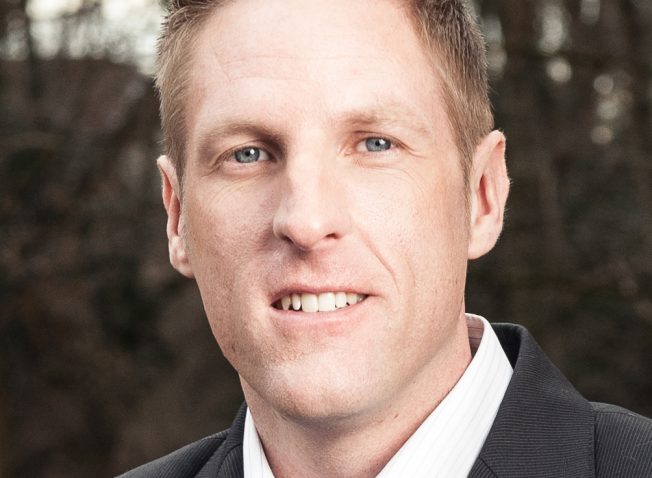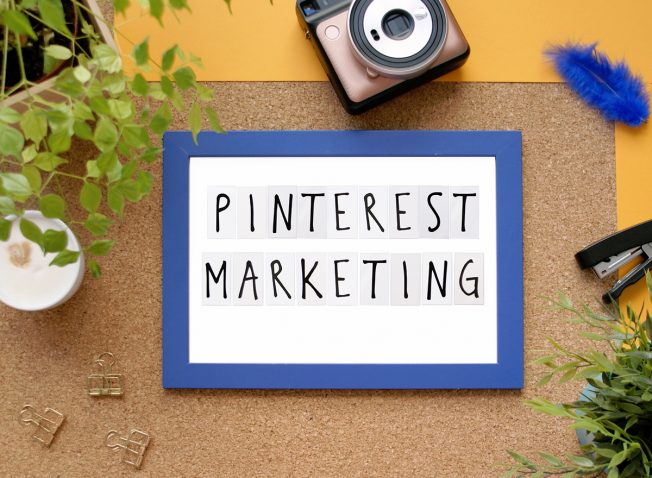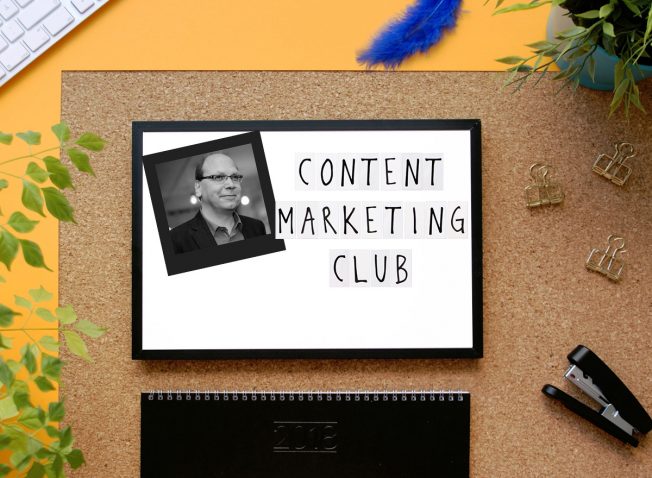Content Marketing Club - Markus Kellermann and Philipp Schütte in conversation: "Good content convinces about services and products."


Until recently, he was an influencer, but today he is becoming one himself: In December, content expert Markus Kellermann joined the Content Marketing Club. Interview pro Philipp Schütte took the opportunity to ask the Augsburg agency boss about the trendy topic of influencer marketing and came up with some exciting key figures. A conversation that we naturally don't want to withhold from you...
{{divider}}
The beginnings...
Philip:
In "Der Online Marketing Manager - Handbuch für die Praxis" (The Online Marketing Manager - Handbook for Practice) you contributed a chapter on affiliate marketing, although you obviously also have a passion for content marketing and influencer marketing, judging by your LinkedIn posts. How did you get into online marketing and what is your focus?
Mark:
That's two questions at once. I came to online marketing in the mid-90s during my training. At that time, I was responsible for the intranet and the Internet in the company and had my first contact with search engine optimization for Fireball and Altavista during the development of the website and, of course, with Google at the beginning of the 2000s.
I was intensively involved in SEO for almost 10 years and also founded the 1st SEO regulars' table together with Thomas Bindl in Munich in 2001. Also in 2001 I came into contact with affiliate marketing for the first time and built up the first affiliate programs for Erwin Müller Versandhaus GmbH for their online stores. Afterwards I was responsible for building up the affiliate department at explido>iProspect for 7 years and since 2012 I am now self-employed.
Philip:
And as an SEO from the very beginning, how do you feel about content marketing?
Mark:
Since 2014, I have been managing director and shareholder of xpose360 GmbH in Augsburg. We have specialized in SEO, PPC, affiliate marketing and influencer marketing and, of course, in content marketing.
For this just published my colleagues Tina and Lydia a great book have just published. It's about the path to perfect content - from strategy to distribution.
{{divider}}
More advertising than content?
Philip:
What do I mean by influencer marketing? Is it just the casual promotion of a product, or is there much more to it?
Mark:
The topic of influencer marketing has been an absolute trend topic since 2017 at the latest. The demand and interest in authentic influencers is high and still shows swings upwards. The recently published Goldmedia study took an extensive look at the development of influencer marketing and for the first time determined their sales in the DACH region...
In 2017, the 30,000 German-speaking digital opinion leaders already generated net revenues of EUR 560 million. The results show that the market for influencer marketing is increasing by around 20% per year. As early as 2020, it will develop into a billion euro market with revenues of EUR 990 million.
The biggest source of revenue for influencers is directly remunerated "sponsored posts. In addition, however, there is also the possibility of giving influencers a share of the revenue generated or providing free products as part of affiliate marketing.
By far the most relevant social media platforms for presenting Sponsored Posts in the form of photos, videos or stories in 2017 were Instagram, YouTube and Facebook. More than three-quarters of the revenues were generated on these three channels only. The Twitter and Snapchat channels are hardly used in German-speaking countries, with less than 10 %, and thus bring up the rear.
61% of advertisers wanted to increase their budget for influencer marketing in 2019. This is particularly good news for niche and micro-influencers, as these are precisely the ones that are highly sought after by companies.
Philip:
as part of this interview series I also recently spoke with Ingo Kampswho thinks it's important that people still recognize the difference between advertising and content. How much do you think these lines are blurring in influencer marketing and what kind of problems can arise from this?
Mark:
Of course, advertising labeling is now legally regulated and is also enormously important. According to a recent PwC study, one in three respondents has already bought a product advertised by an influencer one or more times. Among the under-20s, the figure is as high as 76%.
Accordingly, influencers naturally also have a great responsibility to communicate clearly to young people which products are being advertised and which are not.
In addition, we are currently working with the BVDW to launch a code of conduct for influencers and influencer agencies.
Back in 2017, the PR associations German Council for Public Relations (DRPR), Federal Association of German Press Officers (BdP), Society of Public Relations Agencies (GPRA) and the German Public Relations Association (DPRG) also drew up the "Guideline on PR in digital media and networks". The following is a brief excerpt of the guidelines that apply to the associations' members:
- An advertising message must be clearly recognizable. Both client and contractor bear equal responsibility for this.
- Sender transparency must not be lost when sharing and commenting on paid posts
- Companies that financially support online platforms must clearly communicate their sponsorship role
- If free products were provided for a product test, this must be disclosed
- Social bots are not permitted for responsible public relations. Opinions expressed publicly must come from real people.
Philip:
Keyword: Content Marketing. To what extent are influencers useful as an additional seeding channel for my content pieces?
Mark:
The advertising world has changed enormously in recent years and is moving further and further away from push marketing and sensory overload. We are moving more and more in the direction of pull marketing and want to recruit users exactly where their need arises and is formulated.
Influencer marketing is therefore a very effective channel for directly addressing, picking up and inspiring customers. Of course, good content helps to convince the target group of the services and products in the long term.
{{divider}}
How do influencers fake their reach?
Philip:
Time and again, we hear about influencers who buy their reach with the help of bot networks and other dubious practices. Is it even possible to detect this kind of fraud with the help of tools? And if so, how would you go about it?
Mark:
Influencer marketing is still in its infancy at the moment, so there is still a certain Wild West mentality there. Especially via Instagram, some black sheep among the influencers have acquired tricks to gain reach and likes as quickly as possible.
To analyze the quality of influencers, there are of course some free and paid tools like InfluencerDB, Likeometer or HypeAuditor.
Philip:
Recently, Johannes Wobus commented on your post about "Quality Assurance in Influencer Marketing" with the following words:
"... The tools (tools from your contribution) advertise, among other things, to recognize "fakes" and I claim - quite heretically - that none of these tools can monitor, for example, the exchange networks and the enormously well-protected engagement groups absolutely seamlessly. If someone wants to sell me these tools, I would ask precisely because I know these groups and wonder every time about the difference between the claim to "organic" / "clean" and the reality ...".
What do you think about this statement? And how do you carry out quality assurance in the field of influencer marketing?
Mark:
I completely agree with Johannes. No one can rule out fraud in online marketing 100%.
Therefore, the best fraud prevention is still the personal exchange with the influencers. At xpose360, we subject all influencers we work with to an intensive vetting process consisting of several steps. In addition, the influencers who promote our clients sign a quality guideline.
This ensures that the content is created according to our briefing and that the legal requirements are also met. Before going live, a final acceptance test is carried out to ensure quality and technical functionality.
{{divider}}
Influencer for all
Philip:
Niche influencers are becoming increasingly important for companies. But can an influencer really be found for every niche? And if so, which influencer would you recommend to a company that sells heat pumps or price display signs for gas stations?
Mark:
The market is actually huge. There are currently 1.4 million Instagram accounts with more than 15,000 followers.
The most important thing in an influencer campaign is therefore first of all to define the goal. Among other things, this involves answering key marketing questions: What is the communication goal? Is the focus on increasing sales or brand awareness? What is the reach and engagement goal of the influencer campaign? What is the targeted revenue goal, etc.?
The conception of the influencer campaign then begins. By identifying the target group and defining the communication and channels based on a visual guideline, we develop a coherent overall concept for our clients. And then begins, quite classically, the scouting for suitable influencers who can promote the brand and products authentically and in a target group-specific way. The selection is based on a qualitative and quantitative analysis with the help of suitable tools, as well as our own influencer database, of course.
Philip:
Instagram is growing and growing and growing... But how do you analyze which channel is the best for your customers?
Mark:
That again depends on the individual analysis. For some products Instagram is more suitable, for others perhaps Youtube or Facebook, or even the combination of several channels. There is no general answer to this question.
Ideally, we work with influencers who promote products across multiple channels in order to pick up the user at exactly the right touchpoint in line with the customer journey, which brings us back to the topic of content marketing.
Philip:
In conclusion, what tips can you give our readers about influencer marketing?
Mark:
That they should definitely try influencer marketing.
78% of all consumers trust personal recommendations more than any other advertising statement (according to a Nielsen study). The likeable charisma of influencers and the entertaining presentation of products are key reasons why recommendations from influencers are convincing.
Especially with young target groups, evaluation standards, brand loyalty and buying patterns are even less ritualized than with older users. That's why I can recommend to every company and every brand that still wants to be successful on the market in 10, 15 or 20 years' time to take seriously the target groups that will then be the decisive customers, shaped by their youthful memories of today.
Philip:
In other words, marketing with foresight. I can only agree with that. Thank you for the interview, Markus!
Mark:
With pleasure!
{{divider}}
The quote of the day from online marketing expert Markus Kellermann
Influencer marketing is a very effective channel for directly addressing, picking up and inspiring customers. Of course, good content helps to convince the target group of the services and products in the long term.
100 percent agreement, Markus! If you also want to produce content that convinces your target audience, you can apply here apply for our Content Marketing Academy!
Content Marketing Club - Markus Kellermann and Philipp Schütte in conversation: "Good content convinces about services and products."
contentbird.blog







